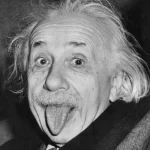“Every cynicism that regards heroism as ridiculous always carries the shadow of physical inferiority.”

- January 14, 1925 – November 25, 1970
- Born in Japan
- Novelist, playwright, critic, political activist
- He became a representative figure of postwar Japanese literature, and was highly acclaimed both at home and abroad. He pursued his own unique aesthetic with themes of beauty and death, and ultimately committed seppuku at a Self-Defense Forces garrison. His life, which combined literature with action, continues to have a strong influence today.
Japanese
「あらゆる英雄主義を滑稽なものとみなすシニシズムには、必ず肉体的劣等感の影がある」
English
“Every cynicism that regards heroism as ridiculous always carries the shadow of physical inferiority.”
Explanation
In this quote, Mishima suggests that cynicism toward heroism—the view that ideals of courage, strength, or noble sacrifice are laughable or outdated—is often rooted in a deeper sense of physical inferiority or personal inadequacy. He argues that those who mock or dismiss heroism as impractical or irrelevant are, in fact, compensating for a perceived lack of physical or personal strength. For Mishima, heroism is not merely an external ideal but something deeply tied to the body and the individual’s relationship with their own physicality. Cynicism, then, reflects a defensiveness against the standards of strength and courage that heroism demands, masking a deeper insecurity about one’s own physical or moral limitations.
Mishima often grappled with the tension between physicality and intellectualism in his works. He believed that modern society had become overly rational and intellectual, neglecting the importance of physical strength and honor. In his view, those who rejected heroism or celebrated weakness were often concealing their own vulnerability—especially in terms of their own physical or emotional shortcomings. Mishima’s philosophy was deeply rooted in the connection between mind and body, and he often idealized figures who embodied this union of strength, beauty, and nobility. In contrast, cynicism toward heroism, for him, reflected a disconnection from the ideal of physical and moral excellence.
In contemporary society, this quote can be applied to the way modern cynicism often downplays or mocks ideals like courage, sacrifice, or selflessness. In a world that increasingly values individualism and self-interest, there can be a tendency to dismiss acts of heroism as naive or old-fashioned. Mishima’s insight calls attention to the underlying insecurities that drive such dismissals, suggesting that this cynicism may reflect a fear of personal inadequacy or a rejection of physical ideals in favor of a more comfortable, intellectualized existence. In this sense, his critique offers a reflection on how society’s rejection of heroism often masks deeper feelings of powerlessness or fear of confronting one’s own vulnerabilities.
Would you like to share your impressions or related stories about this quote in the comments section?


